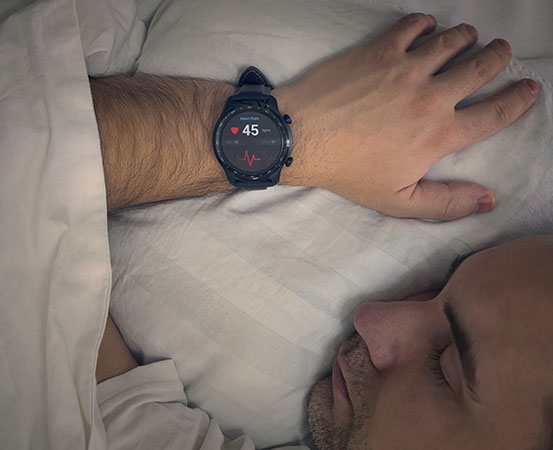
The human brain goes to a restorative stage at night when we go to bed. The saying “Get a good night’s sleep” exists for good reason. Sleep boosts cognition in terms of memory and activates cells, as a result of which your learning is also enhanced. On the contrary, insufficient sleep can lead to delayed response speed and decreased creative and innovative aspects of cognition.
“Sleep is crucial for learning and memory. The information that the brain records throughout the day is converted into long-term memory at night. If we do not get enough sleep, the information gets temporarily stored and eventually forgotten,” said Dr Manvir Bhatia, senior neurologist, sleep specialist and director of Neurology Sleep Centre, New Delhi.
Jessica Payne, a psychologist from the University of Notre Dame, along with her colleagues conducted a study where they examined 207 students on a set of tasks related to learning at different time intervals (30 minutes, 12 hours and 24 hours). They concluded that at the 24-hour retest, the memories of all the students were superior when sleep occurred shortly after learning rather than following a full day of wakefulness.
READ MORE :
You snooze, you score: Sleep well to ace your exams
Sleep deprivation might be behind that body ache
How lack of sleep irritates the eye
Dr Bhatia also said, “Studies have shown that students who slept before or after studying had a good influence on memorisation. On the other hand, those who did not sleep enough showed a 40 percent drop in their learning capabilities.”
How does memory work?
“Memory is an integral part of human cognition. It refers to the continuous process of information retention over a period. It helps us to recall and draw upon past events to frame and understand the behavior of the present,” says Dr Shubha Subramanian, consultant, department of Neurology, Fortis Hospital, Chennai.
The processing and storage of information happens in three stages:
- Acquisition: The first stage involves the intake and processing of information in the brain.
- Consolidation: It involves the stabilisation of the information as memories.
- Recall/Retrieve: It refers to the ability to access information consciously and unconsciously.
“There are different types of memories that are regulated by different parts of the brain. Information is temporarily stored as short-term memory and the necessary information will be converted to long-term memory later,” explains Dr Bhatia.
How is sleep connected with memory?
Sleep broadly consists of two different stages, non-rapid eye movement (NREM) and rapid eye movement (REM) sleep, which are further subdivided into wakeful, light and deep sleep stages during which memory formation takes place.
Dr Subramanian said, “Acquisition and recalling happen during the wakeful stage and memory consolidation happens during the deep sleep stage which continues into REM sleep. Memory consolidation is the stage where all the temporary information stored in the brain are analysed and permanent connections are made between the neurons to convert them into long-term memory.”
She also added that during the NREM stage, information is restructured or reorganised in the brain and during the REM stage, new ideas and thoughts emerge. “All these processes can successfully take place only when you sleep, as a result of which you will be able to recall the information,” she said.
Sleep deprivation impacts learning and performance
Experts say that lack of sleep is the main cause of forgetfulness. “Sleep Deprivation can affect the memory formation processes leading to lack of attention which is required to notice and store information as temporary memory. This can affect the learning processes and the ability to recall information,” says Dr Subramanian.
She further explains, “Sleep deprivation also affects cognitive flexibility (spontaneous thinking). A well-rested individual can adapt and learn in unexpected situations. Sleep-deprived individuals will have difficulty adapting and making decisions in case of uncertain situations. Sleep Deprivation over a period can cause neurodegenerative disorders.”
Improving memory through good sleep
Dr Shobha N, consultant neurologist and stroke physician, Manipal Hospital, Bengaluru suggests the following ways to improve memory and sleep well:
- Studying every day rather than the last minute which can help in retaining information.
- Solving puzzles and learning new languages which can improve the learning aspects of the brain.
- Having antioxidant-rich foods (like nuts, broccoli, sweet potatoes, etc.) for better memory retention and good sleep.
- Maintaining a sleep routine and sleeping for at least seven to nine hours.
- Avoiding loud noises and bright lights before going to sleep.
- Avoiding gadgets before going to sleep.
- Avoiding coffee or other stimulants late in the evening.
- Doing relaxation exercises if there is difficulty sleeping.
The four-seven-eight method
Breathe in to a count of four, hold your breath for the next seven counts and breathe out to a count of eight. A beginner can practice it twice a day, once in the morning and night. One can do it four times. However, a beginner should not go above that number.
Takeaways
- Memory formation and processing happen during different stages of sleep.
- Good quality and quantity of sleep can improve the ability to learn and recall information.
- Insufficient sleep can create difficulty in recalling or memorising information.
- Being mentally and physically active coupled with sleeping for six to eight hours can boost our learning capabilities.


















2 Responses
Very well explained regarding the importance of sleep.✌️?
Very well explained ?, which is a gentle reminder of the importance of sleep to the younger generation ??.